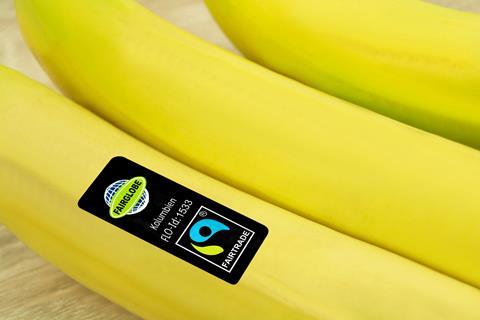Clear link to responsibly made products is recognised by consumers of all ages, new research shows
Fairtrade International has said that its label remains ”the most visible and trusted ethical label for consumers of all ages”, especially amongst Millennials, women, and parents.

This is based on new research findings released by GlobeScan and Fairtrade.
Three out of four shoppers recognise the Fairtrade label, more than other leading labels, while trust also remains high, with 83 per cent of shoppers who recognise the label trusting it.
Regular purchases
Conducted in 13 countries with more than 12,900 individuals, the survey also found that 40 per cent of shoppers regularly buy one or more Fairtrade products a month.
The shoppers with the highest confirmed purchases are under the age of 35, followed by those in the 35-54-year-old group, the study found.
“It’s inspiring to see that recognition and trust in Fairtrade remain high and consumers continue to recognise the impact of Fairtrade with farmers and workers,” said Lisa Prassack, CEO of Fairtrade International.
Prassack explained that consumers remain concerned about the socio-economic issues related to the products they purchase.
In fact, while many shoppers have made cutbacks in their general expenditures due to inflation, the survey found that 60 per cent of them say they are still willing to pay slightly more for a product to ensure that farmers are being paid a fair price.
Some 72 per cent of consumers say the Fairtrade label has a positive impact on the brands that carry it.
The positive brand impression is strongest among 18-34 year olds and parents.
Some two-thirds of the consumers who recall seeing the label agree that it helps them to identify ethical and responsible products.
Social impact
Fairtrade and its work is clearly tied to social impact. The survey found that one in three consumers associate Fairtrade with social impact areas, especially workers’ rights, healthy and safe working conditions, and progress toward a higher standard of living.
Some 62 per cent of shoppers said they felt that by buying Fairtrade products they were part of a community standing up for fairness and justice.
However, shoppers also associated Fairtrade with its environmental work, including preventing deforestation, adapting to climate change, and protecting biodiversity.
Over 60 per cent of consumers say they felt a connection to farmers when buying Fairtrade products, while more than half (55 per cent) of those who recognise the Fairtrade label say they are likely to recommend Fairtrade products.
Some findings show a slight decline from the previous survey in 2023, which Fairtrade attributed to the different composition of the participating countries, but also because of the general trend of additional scrutiny from shoppers when it comes to ethical labels.
In fact, price remains the highest barrier to buying Fairtrade.
Survey composition
Since 2008, Fairtrade and GlobeScan have conducted the biannual survey to help understand consumers’ priorities, attitudes, and expectations, the role of certifications, and the perceptions of the Fairtrade label.
This year’s survey was conducted in February and March 2025 across 13 countries including: Austria, Belgium, Brazil, Canada, Germany, Netherlands, Norway, Poland, Spain, Sweden, Switzerland, UK, and US.
For the first time, Brazil was included in the survey that provided some insight on emerging markets.
For example, 54 per cent of shoppers in Brazil say they trust the label and 77 per cent say they are willing to pay more for ethical products.
The inclusion of Norway and Sweden in this year’s survey provided an in-depth look at the Northern European market.
Some 74 per cent of shoppers in Norway and 89 per cent of shoppers in Sweden recall seeing the Fairtrade label in the last six months, showing strong consumer awareness.
“These survey results clearly indicate that consumers care about ‘ethically sourced’ products that are created with fair labour wages and practices, safe and environmentally responsible work environments, and a sustainable supply chain,” Prassack added.



